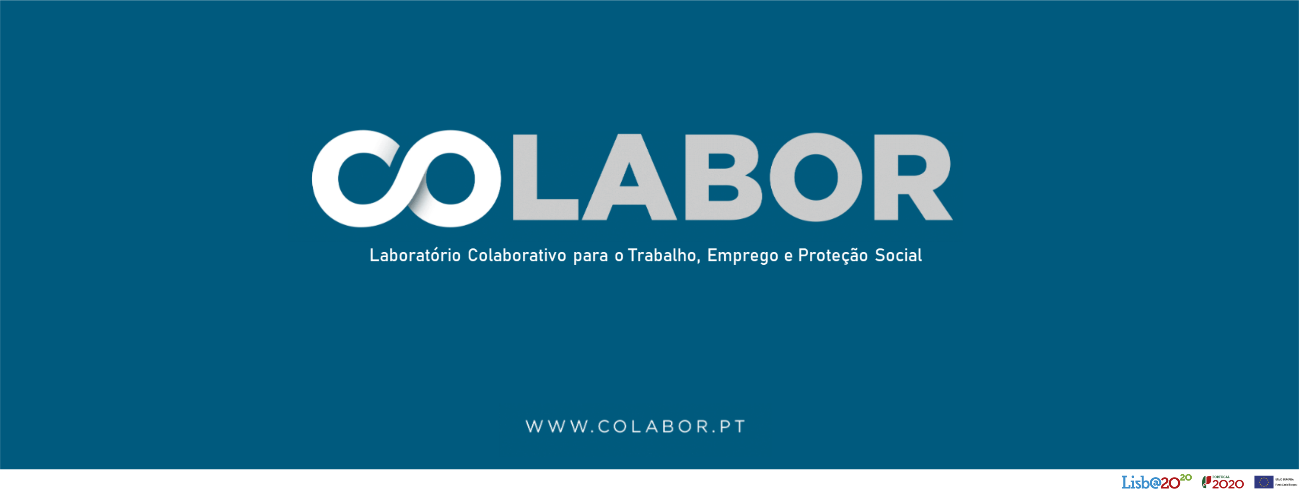Collaborative Laboratory for Labour, Employment and Social Protection (CoLABOR)

The Collaborative Laboratory for Labour, Employment and Social Protection (CoLABOR) was established in 2018 with the Centre for Social Studies of the University of Coimbra (CES) as its proponent institution to the Foundation for Science and Technology.
The Collaborative Laboratories, promoted and evaluated by the Foundation for Science and Technology, are research entities whose main objectives are to «directly and indirectly create qualified employment and scientific employment» and to encourage «collaboration between science, technology and higher education institutions and the economic and social fabric, namely companies, the hospital and health system, cultural institutions and social organisations».
In this view, CoLABOR is the result of a collaboration between entities from academia, the business sector and the social and solidarity sector, comprising multidisciplinary Research Units - economics, law, sociology - entities of great importance in the social and solidarity sector in Portugal, and companies that are particularly sensitive to the changes in the world of labour and their impact on models of social security, with diversity in their presence throughout the country and international projection.
This collaboration involves, in addition to the Centre for Social Studies, two other academic institutions: the Institute of Economic, Fiscal and Tax Law of the Faculty of Law of the University of Lisbon (IDEFF) and the ISCTE - Lisbon University Institute; two entities of the social and solidarity sector: the National Confederation of Solidarity Institutions (CNIS); the Santa Casa da Misericórdia de Lisboa (SCML); and three national large companies: Delta Cafés Sociedade Gestora de Participações Sociais, AS, Mota-Engil, SGPS, and SONAE Corporate.
CoLABOR thus promotes the intensive collaboration of resources from academia, companies and social and solidarity economy organisations, aiming to
- Mobilise and expand the knowledge that is now spread across different types of organisation in order to devise (public and organisational) policy responses to the current and emerging problems in the fields of work, employment and social protection;
- Capacitate public administration, companies, and social and solidarity economy organisations, strengthening analytic and intervention tools, instruments to help anticipate technological and socio-economic changes, and tools to support decision-making both on a micro level – regarding technological reconfigurations, management and organisation methods – and on a macro level – on institutions that regulate new technologies, labour relations, and social protection;
- Qualify employment by training managers and creating scientific employment, directly through engagement in CoLABOR activities, and indirectly at organisations where CoLABOR is asked to intervene.
In pursuit of these objectives, CoLABOR organises its research activities around three main areas:
Work and Employment - The sectorial transformation of employment, the changes in the organisation and performance of work, and progressive automation, challenge the current regulatory framework for employment in terms of both individual work relationships and collective action. Research on the future of work must be framed within an analysis of its current modes of performance and organisation and of regulatory frameworks, having in mind the guarantee of rights and the sustainability of economic activity.
Social Protection - The effectiveness of a social protection system is evaluated by the manner in which it ensures its commitments, and also by its ability to guarantee equality between generations, and solidarity throughout the life cycle and among social groups with different work conditions and income levels. This understanding, which encompasses the functions and political, economic and social roles of social protection, entails an analytical focus that articulates the analysis of the welfare and social protection regimes’ financial sustainability, with concerns about the adequacy of the responses to social risks that change over time due to the new challenges of demography, technology and employment.
Social and Solidarity Economy - In Portugal diverse associative traditions coexist that converge towards the current definition of social economy, namely those deriving from social solidarity institutions, misericórdias [social solidarity associations], cooperatives, and mutual schemes, all of which provide social services, develop alternatives to market provision, and promote well-being. At a time of new needs in the field of social protection and changes in labour relations, research must help consolidate the sector and formulate public policies that strengthen a transparent relationship between partners, correct socio-territorial asymmetries within the social services network, improve institutions’ governance models, and ensure that better responses are given to new social risks that increase this sector’s impact in promoting well-being.


